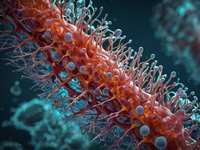- Categories :
- More
Omega-3 Fatty Acids: Reduce Aggressive Behavior

by Mila McManus, MD
Omega-3 fatty acids are crucial for cognitive function and emotional regulation, and a recent meta-analytic review confirms their effectiveness in reducing aggressive behavior. Unfortunately, Omega-3s are grossly void in a standard Western diet. Ideal sources are found in SMASH fish—salmon, mackerel, anchovies, sardines, and herring. They are also harvested from the tiny plankton called krill. 100% grass-fed and finished beef is another source, though commercially raised beef has hardly any, relatively speaking. You might need good sources and intentional supplementation of Omega-3 fatty acids.
One large meta-analytic review (see link below for full report) of randomized controlled trials with over 3,918 participants further supported the evidence and effectiveness of Omega-3 fatty acid supplementation in reducing aggressive behavior in children and adults. The study confirmed beneficial effects across age, gender, recruitment samples, diagnoses, treatment duration, and dosage. Omega-3 supplementation also reduced reactive and proactive forms of aggression, especially concerning self-reports. These findings provide sufficient evidence that omega-3 supplementation can be a cost-effective and safe way to reduce aggression in children and adults in the community, clinics, and criminal justice system.
Omega-3 supplementation can also do much more. It is useful to improve or treat leaky gut, fatty liver, dementia, bipolar disorder, diabetes, elevated triglycerides, obesity, general inflammation, infertility, hair loss, edema, eczema, joint pain, dry eyes, rheumatoid arthritis, menstrual cramps, and mitochondrial dysfunction. It’s also a natural blood thinner, but would not itself replace a prescribed one.
Consult with your healthcare provider to see if Omega-3 fatty acids are right for you. Also, pass the information to families you know who struggle with aggressive behavior in children or adults.
Be Well.
References:
https://www.sciencedirect.com/science/article/abs/pii/S1359178924000466















